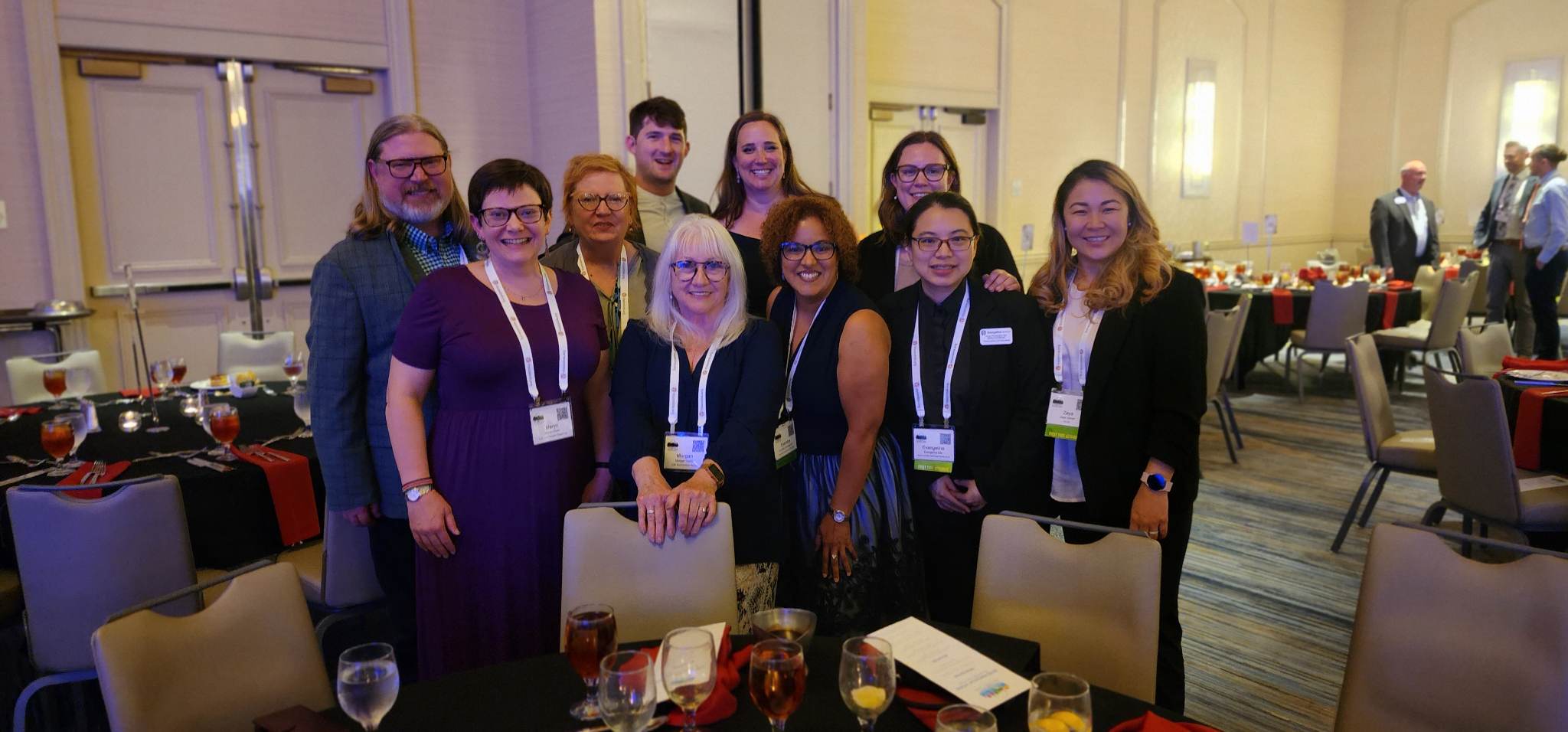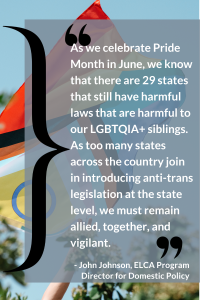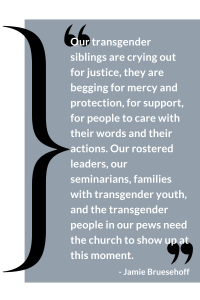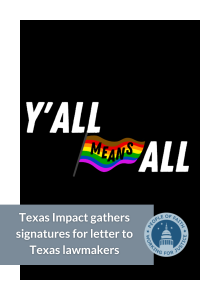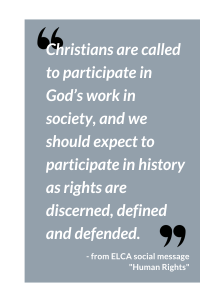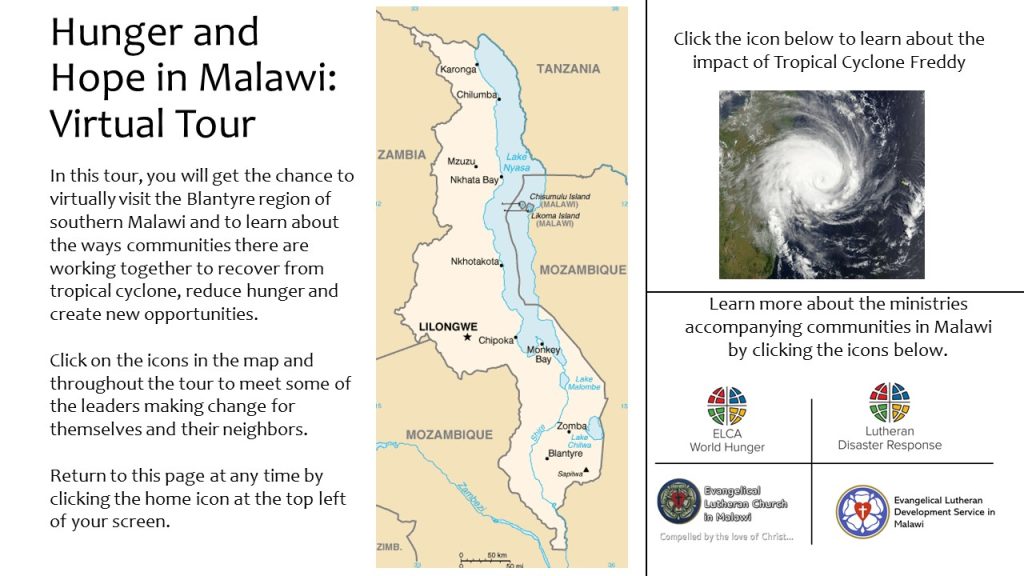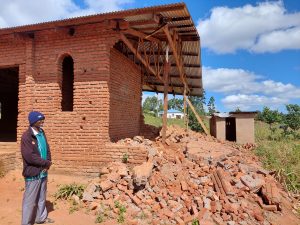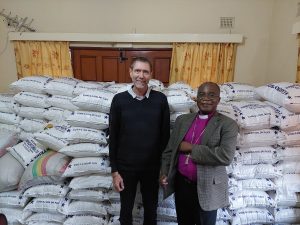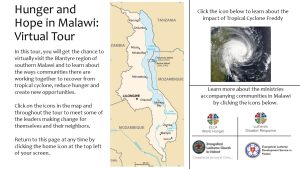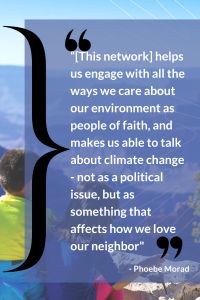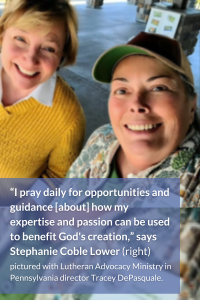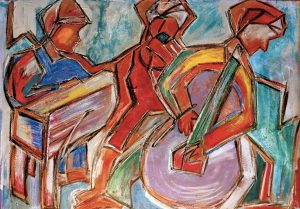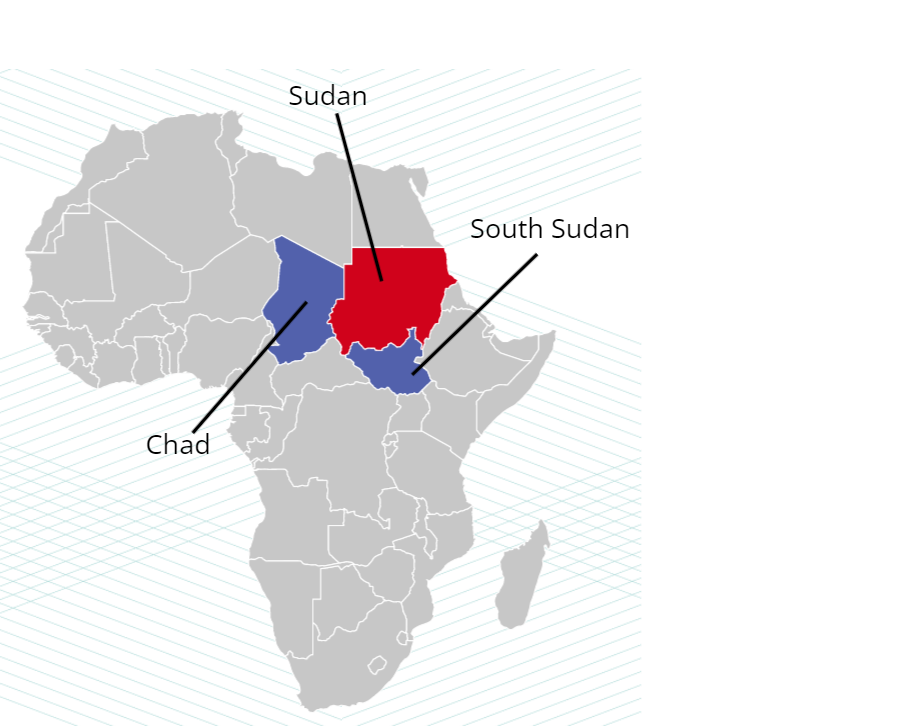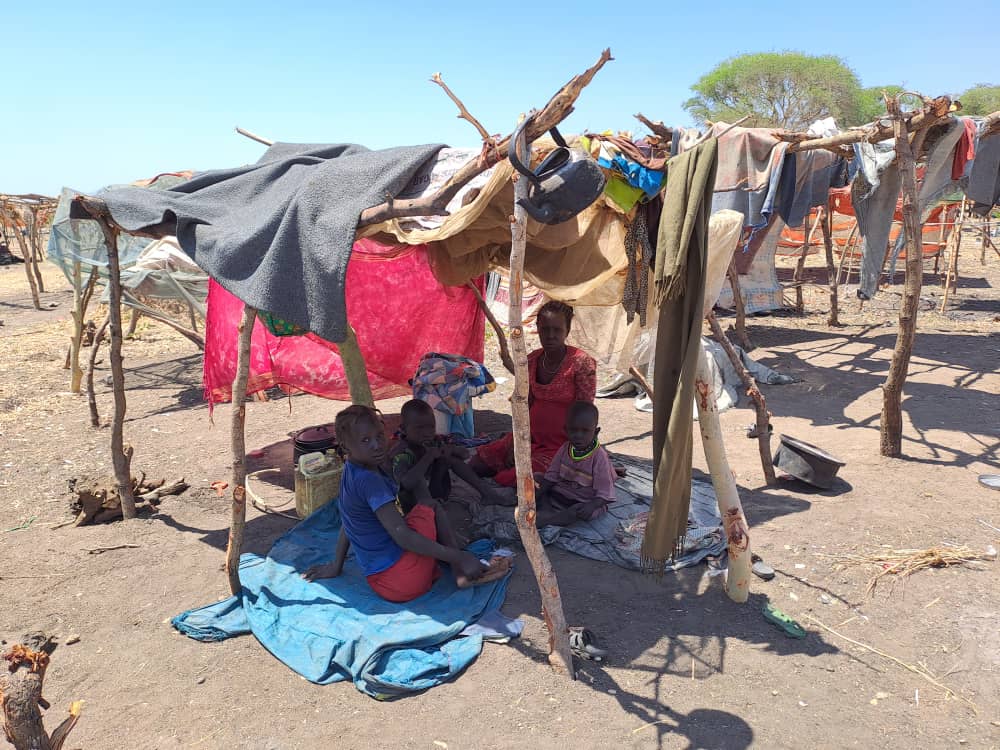Following are updates shared from submissions of the Lutheran Office for World Community and state public policy offices (sppos) in the ELCA Advocacy Network this month. Full list and map of sppos available.
U.N. | CALIFORNIA | MINNESOTA | OHIO | PENNSYLVANIA | WASHINGTON | WISCONSIN
Lutheran Office for World Community (LOWC), United Nations, New York, N.Y. – ELCA.org/lowc
Christine Mangale, Director
- LOWC engaged and monitored the “International Dialogue Migration 2023- Leveraging Human Mobility in Support of the Sustainable Development Goals (SDG) March 30-31. The 2030 Agenda for Sustainable Development (2030 Agenda) marks the first-time migration has been fully recognized as a core development consideration by the international community. This dialogue will feed into the September SDG summit, which marks the halfway point of this 15-year mandated agenda. More information can be found here. A report has been prepared and can be shared upon request.
- LOWC hosted a small delegation of three individuals from the ELCA’s Indigenous ministries team and partners for the UN Permanent Forum on Indigenous Peoples 17-28 April. . LOWC co-sponsored and participated in a side-event, “Between Neglect and Exploitation: The case of Indigenous Communities in the Peruvian Amazon,” that focused on indigenous people from Peru and contained statements of solidarity and common struggle from indigenous people from Africa. Additionally, the ELCA co-hosted a second side-event with Anglicans looking at “The Church and Indigenous Boarding Schools: A Time of Reckoning and Looking to the Future.”
- LOWC also monitored the Finance for Development meetings at the UN from 17-20 April, which is the “ways and means” conversation for the delivery of the Sustainable Development Goals (SDGs), We are in a discernment process with LWF to add depth to this area of advocacy especially as the SDGs approach their halfway point in September.
California
Lutheran Office of Public Policy – California (LOPP-CA) – lutheranpublicpolicyca.org
Regina Banks, Director
It was great to connect with so many strong advocates at Pacifica Synod Assembly in Palm Desert, California on May 5-6. Thank you to everyone who stopped by and engaged with ELCA advocacy there.
The Lutheran Office of Public Policy, California’s (LOPPCA) annual Lutheran Lobby Day took place on Wednesday, May 17th! Lutherans from across the state gathered to advocate for the following bills:
- SB 4 (Wiener)- Affordable housing development & zoning reform. This bill would streamline the process for religious organizations & nonprofit colleges to develop affordable housing on their property.
- AB 249 (Holden)- Clean drinking water in schools. This bill would increase testing & disclosure requirements of school drinking water lead levels. It would additionally allocate funding for testing filters & infrastructure improvements to reduce/eliminate lead in water.
- AB 660 (Irwin)- Food waste, food date labeling reform. This bill would require the use of uniform terms for food product date labels, i.e. removing ‘sell by’ dates and making ‘best by’ or ‘use by’ dates clearer for consumers. The goal is to help reduce food waste, which is a large problem not only for addressing hunger but also for methane emissions and climate change.
- AB 1534 (Irwin)- Methane emissions monitoring requirements. This bill would use remote sensing technology to better identify and then regulate methane emissions from landfills.
Currently, all of these bills are in their respective house’s Appropriations Committees. LOPPCA is hopeful that they will advance to floor votes and proceed through the policy bill process in this legislative session.
Minnesota
Tammy Walhof, Director
Affordable Housing: The final negotiated Housing Omnibus bill passed with $1.07 billion/FY24-35 biennium. Included were programs addressing homelessness, rental assistance, rental-home preservation, manufactured-home coop purchase, first-time & workforce homeownership, lead-safe homes, and more. The Senate accepted the House’s seven-county metro area sales tax for ongoing housing funding (causing the loss of bipartisan Senate support), in exchange for lowering spending levels.
Lutheran Advocacy-MN focused on big-picture funding/investments, as the Homes for All 2023 Agenda was long and complicated. We are pleased so many Homes for All details were addressed, and that our big-picture advocacy helped secure bipartisan support for the original Senate bill!
We’re also glad many (though not all) rental reforms we’ve supported over several years passed separately.
Sacred Tiny Home Communities: Sacred Tiny Home bipartisan language remains in the final Labor Omnibus Bill. We anticipate passage soon by a close margin since other aspects of the Omnibus are controversial.
We are delighted that some of our Minnesota ELCA synods passed resolutions in support of these Sacred Settlements, and committed to encouraging congregational engagement beyond solely legislative support/action.
Negotiations Continue: Other areas for which we’ve had action alerts continue to be in play in various negotiations. Among those are…
- Homeless Shelter and Homeless Youth Funding in Health & Human Services bill negotiations.
- Inclusion of Next Generation Climate Act updates to reflect current science and emphasize the need for lowering harmful emissions across the spectrum in Energy & Climate negotiations.
- Funding for the Minnesota Climate Innovation Finance Authority (MnCIFA) to smooth the clean energy transition from both the Energy & Climate and Jobs/Economic Development negotiations.
Ohio
Deacon Nick Bates, Director
On May 11th, 2023, Hunger Network in Ohio in partnership with the Ohio Council of Churches and Dominican Sisters of Peace, held a Budget Advocacy Luncheon – Praying for Our Daily Bread. There were over 100 attendees present, representing over 28 organizations. Additionally, 20 legislators and their staff were present at the event. Speakers included Representative Jay Edwards (Ohio House Finance Chair), Representative Bride Rose Sweeney (Ranking Member of the Ohio Finance Committee), and Bishop Gregory V. Palmer of the West Ohio Conference, UMC. We’re grateful to have had the opportunity to co-host this impactful event, and to have made an impact to ensure that one day, everyone in Ohio will receive their daily bread.
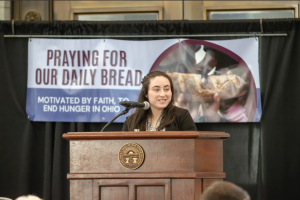
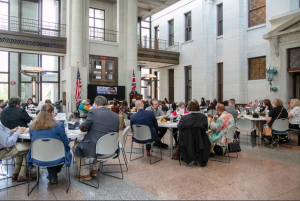
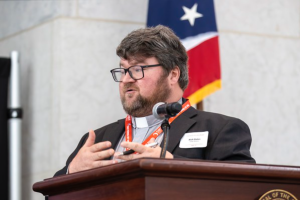
Pennsylvania
Lutheran Advocacy Ministry – Pennsylvania (LAMPa) lutheranadvocacypa.org
Tracey DePasquale, Director
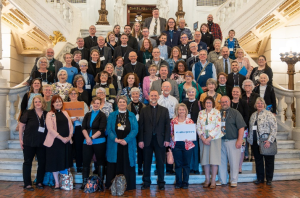 Lutherans turned out in record numbers for the Lutheran Advocacy Ministry in Pennsylvania (LAMPa) annual day of advocacy on April 27. More than 150 attendees participated in workshops on hunger, climate, clean water, housing insecurity, LGBTQ+ policy and resources for the new study guide on civic life and faith, before traveling to the Capitol to advocate on hunger and housing priorities in the upcoming budget.
Lutherans turned out in record numbers for the Lutheran Advocacy Ministry in Pennsylvania (LAMPa) annual day of advocacy on April 27. More than 150 attendees participated in workshops on hunger, climate, clean water, housing insecurity, LGBTQ+ policy and resources for the new study guide on civic life and faith, before traveling to the Capitol to advocate on hunger and housing priorities in the upcoming budget.
“The day was full of energy,” said LAMPa Director Tracey DePasquale. “It was wonderful to be gathered again after four years!”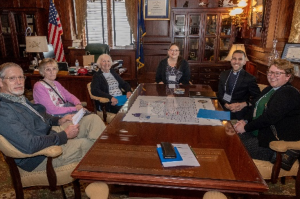
The Rev. Dr. Roger Willer, ELCA director of theological ethics in the Office of the Presiding Bishop, offered the keynote on Discipleship in a Democracy. “The response to the keynote and workshop on progress toward the new social statement gives us hope that these resources will 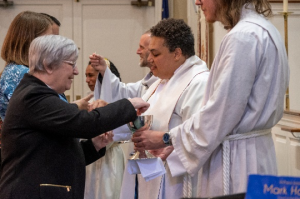 spark good conversations and that our congregations will find the resulting statement useful in their witness and in their daily discipleship,” DePasquale said.
spark good conversations and that our congregations will find the resulting statement useful in their witness and in their daily discipleship,” DePasquale said.
Even the day’s worship was based on materials used in the study guide, making it a great sending for our work in the Capitol. Watch a recording here.
Advocates from each synod were recognized as a way of lifting up their work and inspiring others. Read their stories.
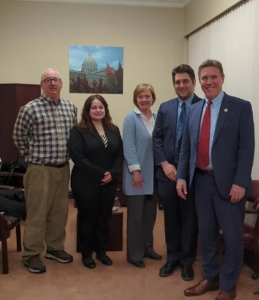 DePasquale has also been busy with legislative visits on environmental justice, participating in SEPA Synod Assembly, a consult with Lutheran Disaster Response, and a conference on science-based targets for faith-based organizations sponsored by World Resources Institute and Georgetown University.
DePasquale has also been busy with legislative visits on environmental justice, participating in SEPA Synod Assembly, a consult with Lutheran Disaster Response, and a conference on science-based targets for faith-based organizations sponsored by World Resources Institute and Georgetown University.
Washington
Faith Action Network (FAN) – fanwa.org
Elise DeGooyer, Director
We have good news to share as the 2023 Washington State Legislative Session adjourned on April 23. We are celebrating some victories and historic milestones for the people of our state:
- Our hunger and safety net bills were among the first to pass and be signed by the Governor this session—adding $28M for emergency food and nutrition services, school meals for 90,000 more K-12 students, and basic needs supports for college students. Investments were made to expand affordable housing.
- We especially celebrate the removal of the death penalty from state law, following decades of work and after it was deemed unconstitutional by the State Supreme Court.
- In a year where we have grieved multiple mass shootings, our state took steps to limit assault weapons, add comprehensive background checks, and hold the gun manufacturers accountable for controls.
- The legislature also protected reproductive choice and gender-affirming care in Washington with several bills this session. You can find our full listing of wins and analysis on our website under Legislative Agenda.
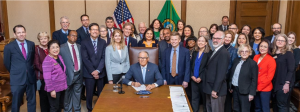
Wash. Governor Jay Inslee signing the Death Penalty Bill with elected officials and advocates
And there is more work to do! The governor called a special session to begin on May 16 to address an impasse over an expiring law about drug possession penalties. Our coalitions’ economic justice bills to fix the state’s regressive tax system—the Wealth Tax, Guaranteed Basic Income, and Future Fund—did not move this session, but important conversations were begun. Renter protection bills to prevent homelessness also did not pass.
Wisconsin
Lutheran Office for Public Policy – Wisconsin (LOPPW) loppw.org
The Rev. Cindy Crane, Director
Youth Advocacy Retreat
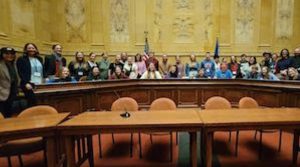 Thirty youth from all six synods and several adults showed up for a weekend in April to be part of our first Youth Advocacy Retreat.
Thirty youth from all six synods and several adults showed up for a weekend in April to be part of our first Youth Advocacy Retreat.
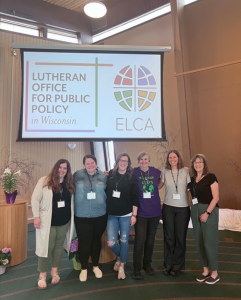 Our organizers included Deacon Laura Ramlow Synod Minister – Communication, Faith Formation, Malawi (Northwest Wisconsin Synod);, Rev. Jenn Pockat, Associate to the Bishop, Director for Communications and Community (East Central Synod of Wisconsin); Rev. Marie Leafblad, Associate to the Bishop for Leadership Support (South-Central Synod of Wisconsin);, Rev. Cindy Crane (LOPPW director);, Ms. Stefanie Ehle, Synod Youth Ministries Coordinator (Northern Great Lakes Synod);, and Ms. Gretchen Haugse, Youth and Sunday School Ministries, St. Matthew’s Ev. Lutheran Church, Milwaukee (Greater Milwaukee Synod).
Our organizers included Deacon Laura Ramlow Synod Minister – Communication, Faith Formation, Malawi (Northwest Wisconsin Synod);, Rev. Jenn Pockat, Associate to the Bishop, Director for Communications and Community (East Central Synod of Wisconsin); Rev. Marie Leafblad, Associate to the Bishop for Leadership Support (South-Central Synod of Wisconsin);, Rev. Cindy Crane (LOPPW director);, Ms. Stefanie Ehle, Synod Youth Ministries Coordinator (Northern Great Lakes Synod);, and Ms. Gretchen Haugse, Youth and Sunday School Ministries, St. Matthew’s Ev. Lutheran Church, Milwaukee (Greater Milwaukee Synod).
Additional Recent Events
Women of the ELCA: The Lutheran Office of Public Policy in Wisconsin (LOPPW) had a presence and spoke briefly at the La Crosse Area Synod Women of the ELCA Convention, which focused on faith and citizenship. Rev. Joanne Richmond of Our Savior’s Lutheran, La Crosse, Wisc., gave an excellent presentation.
East Central Synod of Wisconsin Lay School: LOPPW’s director led a class on the ELCA social statements for the East Central Synod of Wisconsin Lay School of Ministry, coordinated by Rev. Mark Ziemer. LOPPW will lead one more class on Luther and social justice in May.
State Budget
LOPPW submitted these comments to the Joint Finance Committee: 2023 Joint Finance Committee Requests
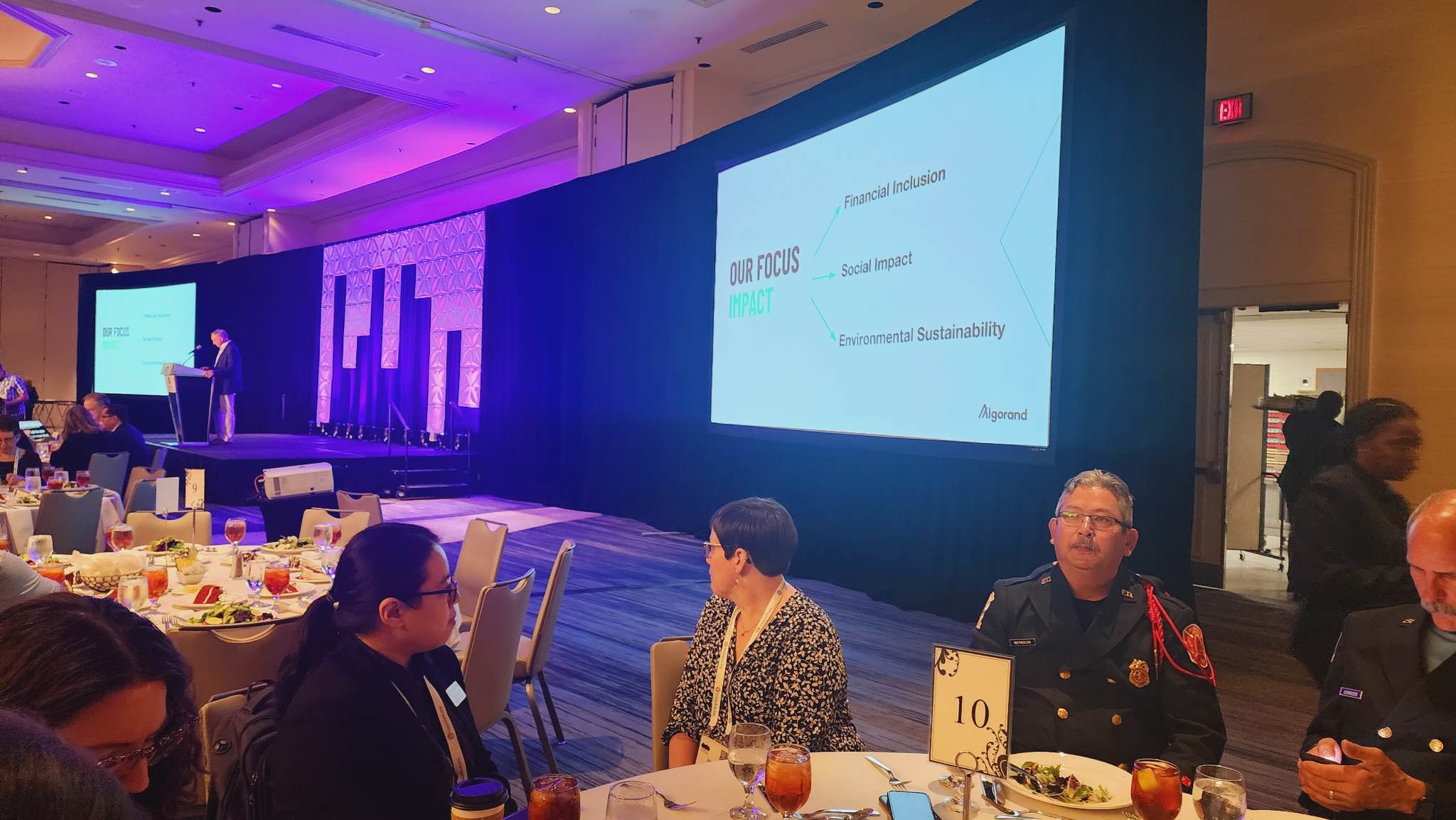
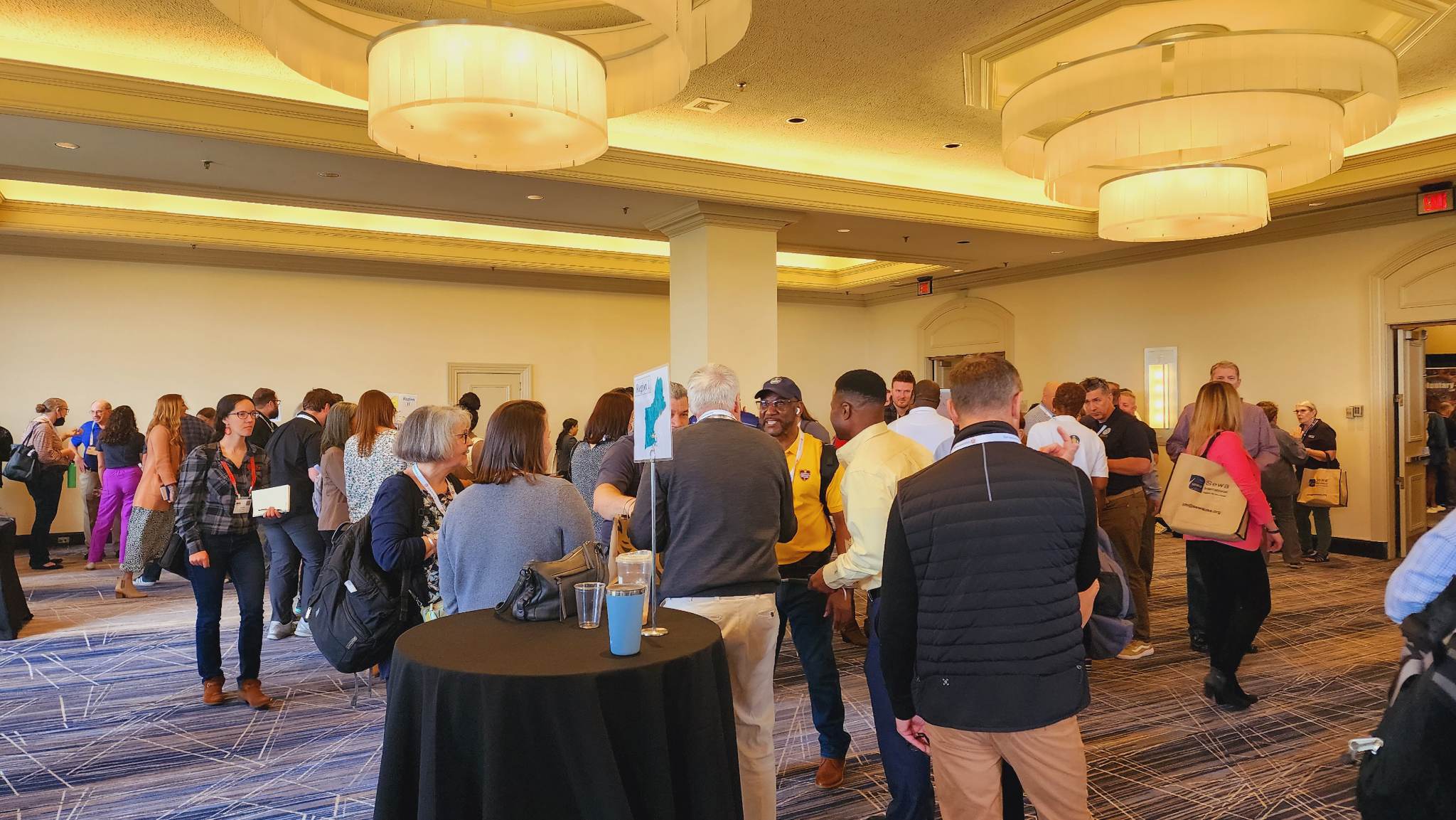 for the opportunity to have learned alongside the wide range of partners and organizations involved in responding to disasters. I’ve come to this work from parish ministry and community chaplaincy in an environmental justice community. As someone who grew up with a single mom who was a nurse, for me, one striking parallel between both the environmental justice movement and the VOAD movement is the amount of people with working-class backgrounds in leadership. Representation matters, especially when disasters disproportionately impact working-class and impoverished households. I am humbled and honored to be surrounded by such a great cloud of witnesses, which gives me tremendous hope in the ways the Spirit is guiding us.”
for the opportunity to have learned alongside the wide range of partners and organizations involved in responding to disasters. I’ve come to this work from parish ministry and community chaplaincy in an environmental justice community. As someone who grew up with a single mom who was a nurse, for me, one striking parallel between both the environmental justice movement and the VOAD movement is the amount of people with working-class backgrounds in leadership. Representation matters, especially when disasters disproportionately impact working-class and impoverished households. I am humbled and honored to be surrounded by such a great cloud of witnesses, which gives me tremendous hope in the ways the Spirit is guiding us.” 
